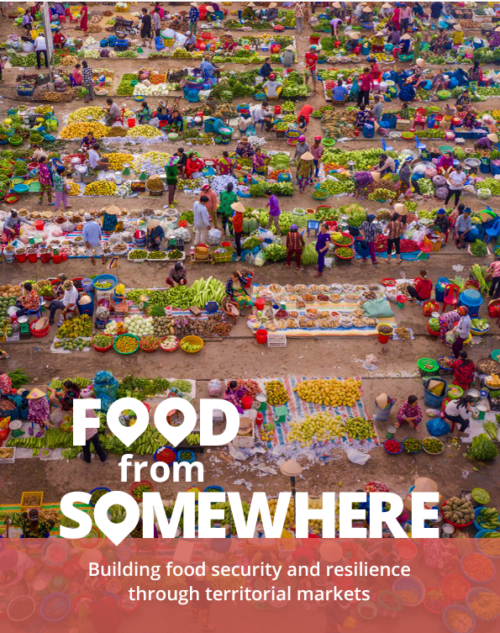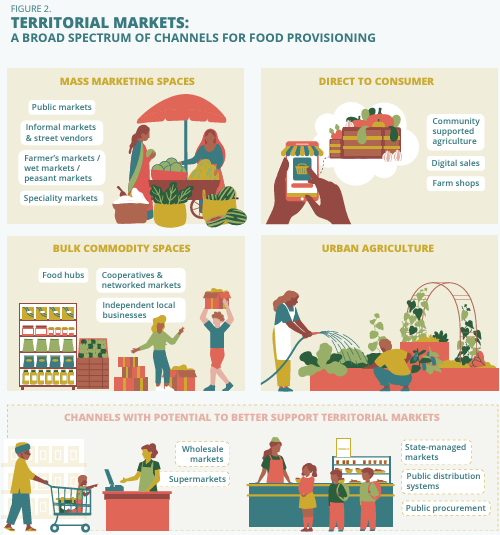I’m on the visionary panel. To register, click here.

IPES Food (International Panel of Experts on Sustainable Food Systems) has a new report, Food From Somewhere: Building food security and resilience through territorial markets.

The report argues that territorial food systems are better able to promote food security than industrial food systems. This is because “corporate controlled global food chains offer a flawed recipe for food security, and are full of risks and vulnerabilities:
- the exposure of industrial commodity production to climate shocks;
- the diversion of valuable resources into ultraprocessed foods, livestock feed, and fuel;
- the standardization of diets around wheat, rice, and maize, and the growing reliance on a handful of crops and commodity exporters for global calorie intake;
- the bottlenecks in fragmented and geographically-dispersed global chains;
- the vast energy requirements built into high-tech digitalized supply chains – and
- the dangers of making global food security contingent on ‘just-in-time’ supply chains that do not work all the time.”
The remedy: “we found that territorial markets are the backbone of food systems in many countries and regions, and make critical contributions to food security, equity, and sustainability, while building resilience on multiple fronts.”
By territorial, they mean regional, local, close-to-home markets, with short supply chains.

The report comes with a video introduction.